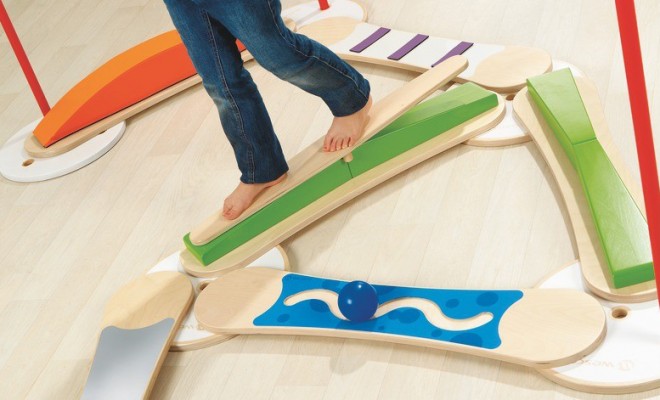
Childcare Activities
How We Can Encourage Motor Skills
During their first six years of life, children learn to sit, stand, crawl, roll, climb, run, jump, sprint, push and pull. These movements must be executed with coordination, precision and flexibility. Practising motor skill exercises will create a steady base for the development of fine motor skills, which rely on control of the upper limbs. The more children develop their fine motor skills, the more they can engage in daily life, whether at home, nursery or school.
What exactly are children’s motor skills? Movement is a sign of life and the first moments of a child’s life are characterised by their motor skills in several ways: Manipulation (the ability to grab an object), locomotion (which allows them to move), interpersonal skills (expression, communication).
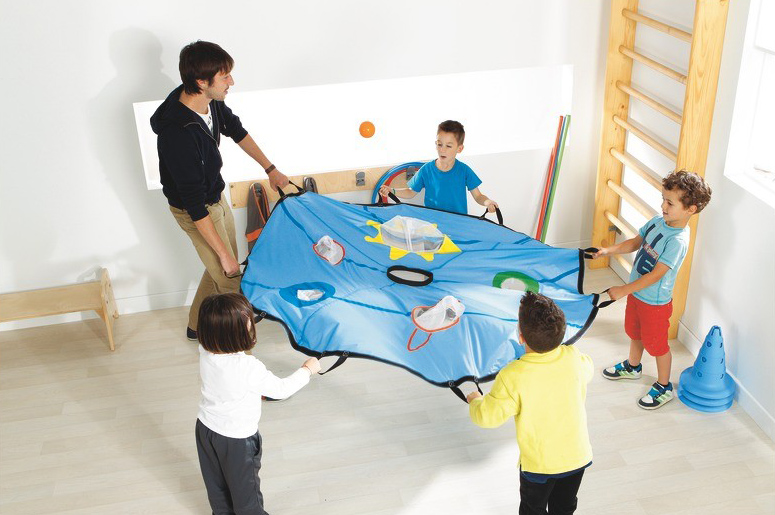
These motor skills require the qualities of dissociation and coordination. Firstly, there is a dissociated segmentation of the movement into separate parts rather than one complete action. Secondly, coordination is then used to combine the originally segmented parts to create a complete movement. Our sensorimotor cortex is responsible for all voluntary movements, acting in cooperation with the postural motor system. Throughout life, these movements will develop, which not only has an effect on the way they are completed but also alters the energy and attention they require.
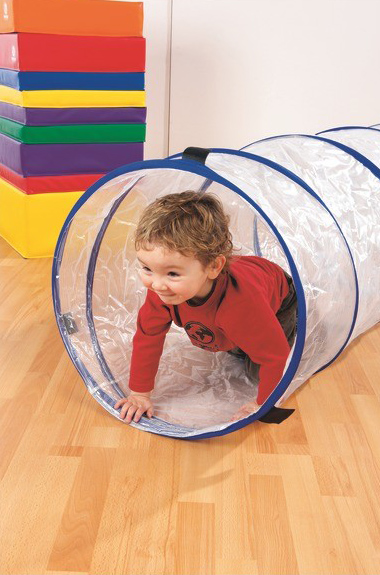
The creation of a safe space, in which the child is protected by soft carpets and cushions, allows the child to participate in activities at their own pace.
1.Motor Skills Board 2. Mirror Valley Kit 3. Star Parachute and Balls
Sensory and Motor skills can be developed through the use of an obstacle course/journey such as the Mirror Valley Kit
‘It is through sensorimotor experiences and manipulation of surrounding environments that children discover the world. In discovering their body and it’s potential, children gain confidence in themselves and their abilities. They learn balance, coordination and spatial awareness, both of themselves and their surroundings. As a result of these developments children can progress onto spatial and temporal structuring, entering into more symbolic thought processes. For this reason, it is crucial that motor skills are developed in children, especially those who take longer to learn.’- – Emanuelle Langlois, Practitioner of psychomotricity
Developing Coordination
‘A group parachute is a must-have for group sessions which are focused on movement. It is an excellent product to encourage listening, coordination and group work. It is also helpful for children who have trouble paying attention as it is the parachute itself that tells them the movement and rhythm they need to adopt, rather than an authoritative figure. Consequently, this product presents a great way for children to learn how to listen to their own body while learning to agree with others. There are many game possibilities and the parachute can be adjusted to suit a variety of age groups, above the age of two” – Emanuelle Langlois, Practitioner of psychomotricity




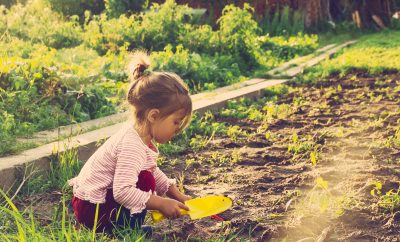
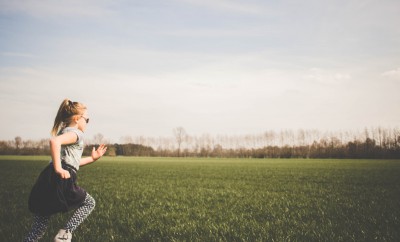


You must be logged in to post a comment Login